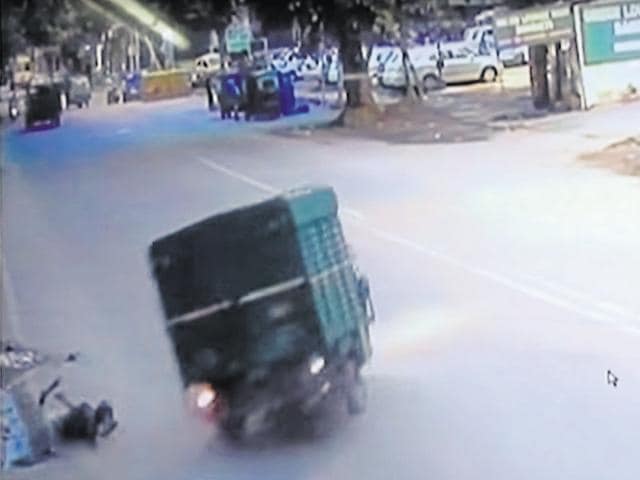Here’s why passersby fear to help accident victims
In countries like France, Germany, Belgium, failing to provide help and passive attitude is a criminal offence. A bystander overlooking an accident victim is liable for imprisonment up to five years and a hefty fine. However, in India, it remains a directive.
Is it mere indifference, apathy or a major disconnect among people in a metropolis like Delhi which has now started to reflect on the roads?

While the images of an accident where a man in his 40s is run over by a goods carrier and passersby ignore him, with no one willing to make a PCR call or call for an ambulance, are shocking, they also highlight the lack of laws that can encourage, if not mandate, people to help victims.
Read more: Man bleeds to death on Delhi road after hit-and-run, gets robbed as well
In countries like France, Germany, Belgium, failing to provide help and passive attitude is a criminal offence. A bystander overlooking an accident victim is liable for imprisonment up to five years and a hefty fine. However, in India, it continues to remain a directive.
Even though the Supreme Court bench of Justices V Gopala Gowda and Arun Mishra, in March 2016, issued directions to make sure that no person helping an accident victim is detained at the police station, forced to disclose their identity or is questioned and in fact is given a certificate by the state authorities as an “incentive”, people still avoid helping as they do not want to be a party in the case.
The directives have only listed out guidelines for the enforcement agencies (police in this case), for the protection of good Samaritans but does nothing to deter the ‘bystander effect’ (a social psychological phenomenon in which individuals do not offer any means of help to a victim) or punish them.
Saji Cherian, director (operations), Save Life Foundation, a road safety NGO on whose petition the Supreme Court issued the Good Samaritan directives in March this year, explained why “Fear of police harassment, detention in hospitals and being sucked into long judicial processes are the three main reasons for people not helping accident victims.”
He said that if awareness regarding this directive is spread, then people will come forth to help. “People still feel that they will be caught between the police and courts if they help an accident victim. They need to be aware of their rights. If the state government invest in publicising the directives of the Supreme Court, so that it reaches out to not just people but also the enforcement agencies, then things will change.”
The police, however, maintained that they do record the witness’ statement, check his background, see if he had been penalized for speeding in the past, and even summon them for inquiries, as it is part of the procedure.
Read more: RIP Humanity: Twitter reacts to Delhi hit-and-run
An investigator said that people use this reason of being harassed later, as a convenient excuse, a scapegoat, to not help. “This is a convenient defense mechanism. People in general have become heartless. No investigator harasses a witness but a procedure has to be followed and initial investigation in the case is mandatory. This is to make sure that the one claiming to be a witness is not the accused. We check their past records, licence and record their statement. They are even summoned by the court and have to attend several dates. However, this should not stop them from saving lives,” he said.
According to the Global Road Safety Report, 2015, released by the World Health Organisation, 2 lakh people died in road accidents in India in 2014. According to NCRB’s data, on an average, 16 people lost their lives every hour in 2014.




